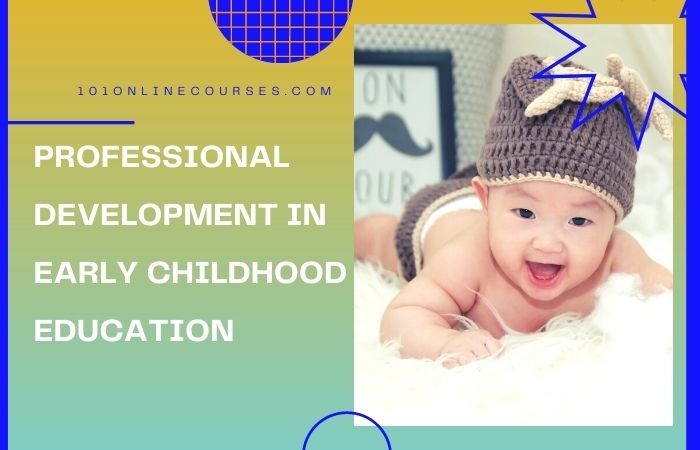A person’s early childhood plays a vital part in their future. It is the time when they learn to speak, walk and play with other children. They also develop social skills that will help them later on in life. The quality of education during this period can have an impact on how well-adjusted these kids are as adults.
Table of Contents
Importance of Early Childhood Education
The first three years of a child’s life are crucial for his or her growth and development. During this stage, he or she learns many things such as language, physical coordination, cognitive abilities, emotional maturity, self-esteem, and more. If parents do not provide proper care and attention to their babies, toddlers, and young children then it may affect their overall performance in school.
The importance of early childhood education cannot be underestimated because it also helps shape our personality and character. Without proper guidance from parents, teachers, and peers, students might face problems and issues that could lead to serious consequences later in life. Therefore, it is very essential to ensure that every student receives adequate support and encouragement throughout their educational journey.
Benefits of Early Childhood Education
Early childhood education has several benefits. Some of which include:
1. Improves academic achievement
When children attend preschool programs regularly, they tend to perform better academically than those who don’t. Whether these programs help them prepare for a future STEM career or just improve their reading comprehension, there is no doubt that attending one improves their chances of success in college.
2. Helps build strong relationships
Children benefit greatly from having friends and family members around them all day long. This means that they get more opportunities to interact with people outside of school. As a result, they become familiar with different cultures and lifestyles. These interactions help them form friendships and bonds that last through adulthood.
3. Builds confidence
One way to measure whether someone is confident is by looking into their eyes. A confident individual usually looks straight ahead while a shy person tends to look down. By providing positive reinforcement and encouraging feedback, educators can teach children how to overcome fears and anxieties.
Things to Consider before Opting for an Early Childhood Education Course Online
Once you believe that enrolling your baby/toddler in an online course would be beneficial for him or her, here are a few questions that you should ask yourself so that you make the right decision.
1. What age group does my child belong to?
If your child belongs to the toddler category, then you must consider enrolling him or her in a program designed specifically for 2 -4-year-olds. Toddlers grow fast and therefore require special training and activities that cater to their needs.
2. How much time am I willing to invest in my child?
Enrolling your kid into an early childhood education course is not something that can be done overnight. It takes at least 6 months of consistent effort on your part to ensure that he or she gets all the benefits out of it. If you have other commitments like work or family responsibilities, then this may take longer than expected. So if you want to get maximum results from your investment, then you need to give enough time to complete the course successfully.
3. Is my child ready for an online class?
Enrolling your child in an online development course requires certain levels of readiness. Toddlers need to learn basic concepts such as numbers, shapes, letters, and opposites before they can begin taking part in educational programs. So when choosing an online early childhood education provider, ensure that your child meets the minimum requirements set forth by the institution offering the service.
Best Certificate Courses in Early Childhood Care & Education
Certificate courses in early childhood care and education provide students with hands-on experience working with young children. They also allow students to gain valuable skills needed to succeed in the field. Students enrolled in certificate programs receive certificates upon completion of the program. The following list provides information about some of the best certificate programs available today:
1. Asian College of Teacher’s Certificate in Early Years Care and Education Teacher Training
This certificate course is a total of 60 hours, and candidates must complete the course in 4 months. It aims to provide the candidates with deeper knowledge about innovative teaching approaches and child development.
2. Rasmussen University’s Early Childhood Education (ECE) Certificate
This certificate program is designed for students who are looking for an initial step into early childhood education. It can be finished in around 9-12 months and is recommended for students who want to work with children from birth to age eight in childcare and non-public school setting.
3. Tufts University’s Early Childhood Technology Certificate Program
This three-course program is designed to introduce the teaching of technology and engineering in early childhood. It consists of two online courses and a one-week in-person summer residency.
Conclusion
That’s the end of this article. I hope you will find it useful and if you want me to add some more topics please let me know.
In this article we have covered all the major and minor topics related to Early childhood education and professional development in child
FAQ's
What are some Benefits of Early Childhood Education?
- Improves academic achievement.
- Helps build strong relationships.
- Builds confidence.
How to reduce stress and anxiety?
If you want to remove stress and anxiety and want to live a balanced lifestyle you can opt for any of the meditation classes it will help you to deal with the problem of stress and anxiety.

